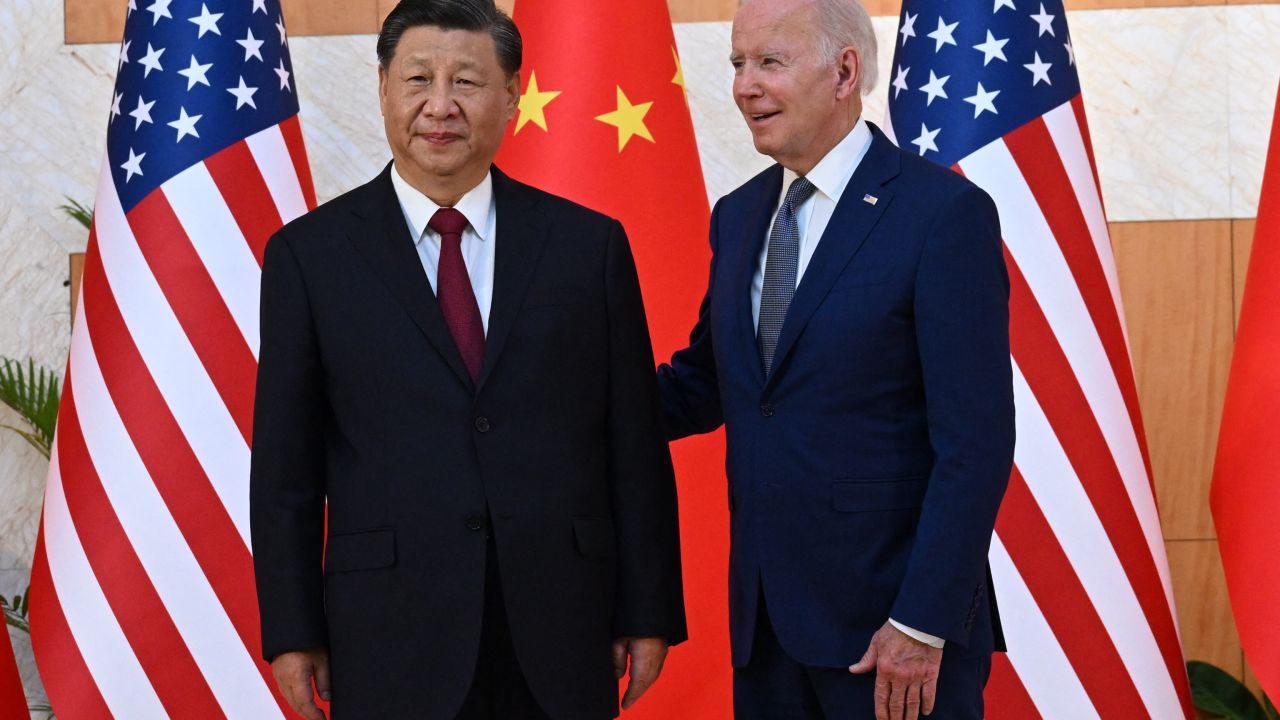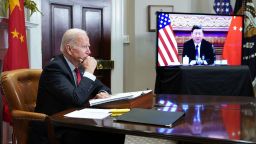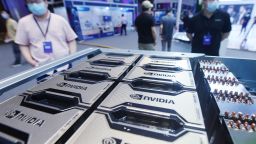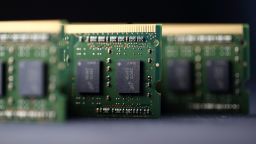Two European chip deals have run into trouble over their links with China, a sign of concern spreading in the West over potential Chinese control of critical infrastructure.
Last week, the new owner of Britain’s biggest chipmaker was ordered to unwind its takeover, just days after another chip factory sale was blocked in Germany. Both transactions were hit by national security concerns, and had involved acquisitions by Chinese-owned companies.
In the United Kingdom, Nexperia, a Dutch subsidiary of Shanghai-listed semiconductor maker Wingtech, was told by the government to sell at least 86% of its stake in Newport Wafer Fab, more than a year after taking control of the factory. Staffers have since been protesting the decision, saying it puts nearly 600 jobs at risk.
In Germany, the economic ministry barred Elmos Semiconductor, an automotive chipmaker, from selling its factory in the city of Dortmund to Silex, a Swedish subsidiary of China’s Sai Microelectronics.
Chipmaking was already emerging as a new front in US-China tensions. Now the two troubled deals illustrate how the pressure is also rising in Europe, particularly as Western officials face calls for key sectors to be kept out of Chinese control.
“These decisions mark a shift towards tougher stances regarding Chinese investment in critical industries in Europe,” said Xiaomeng Lu, director of geo?technology at Eurasia Group.
“US pressure definitely contributed to these decisions. [A] growing sense of technology sovereignty also likely prompted these moves — governments around the world are increasingly [viewing the] semiconductors industry as a strategic resource and seek to protect them from foreign takeovers.”
Two new flashpoints
Legal experts said the two decisions were notable because each deal was initially thought to have been cleared.
The Newport Wafer case is “the first completed acquisition” that needs to be unwound under a UK national security and investment (NSI) act, which took full effect in January, according to Ian Giles, head of antitrust and competition for Europe, the Middle East and Asia for Norton Rose.
Nexperia said last week that it was “shocked” by the decision, and that “the UK government chose not to enter into a meaningful dialogue with Nexperia or even visit the Newport site.”
The company added that it had offered to avoid “activities of potential concern, and to provide the UK government with direct control and participation in the management of Newport,” a 28-acre site in south Wales.
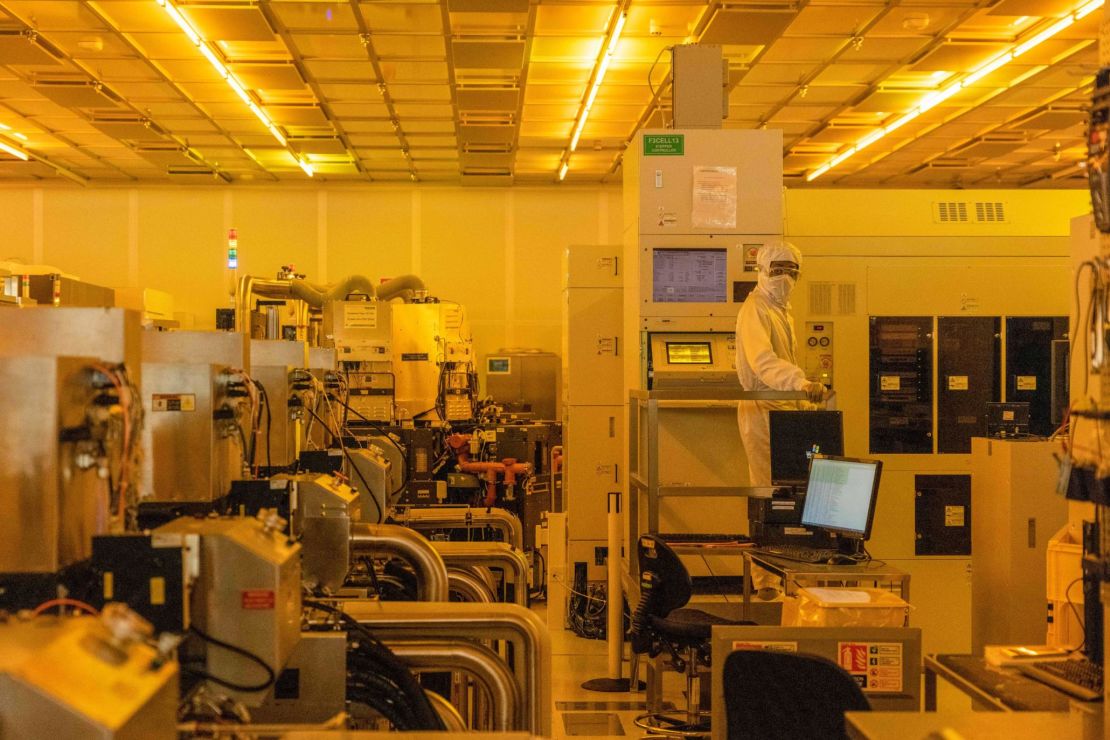
The factory makes silicon wafers, the basis for making computer chips. Many of its products eventually power cars and medical equipment. Nexperia has indicated that workers at the facility now face an uncertain future.
In an open letter to the UK government last Thursday, the Nexperia Newport Staff Association said that it was “in disbelief” that employees’ livelihoods had been “put in jeopardy in the run-up to Christmas.”
“This is clearly a deeply political decision,” the group wrote, rejecting the idea that the deal would undermine British security. “You must see sense and protect our jobs by allowing Nexperia to keep their Newport factory.”
For Elmos, German authorities had initially indicated that they would issue a conditional approval, and even shared a draft approval after an intense review process lasting about 10 months, the company said in a statement following the injunction.
Tim Schaper, head of antitrust and competition for Germany at Norton Rose, said government intervention was also significant given that “Elmos’ technology is said to be quite old, state of the art in the 1990s, and allegedly not of great industrial importance.”
“The transaction became the plaything of a public debate about Chinese investors’ acquiring stakes in key German technologies,” he said.
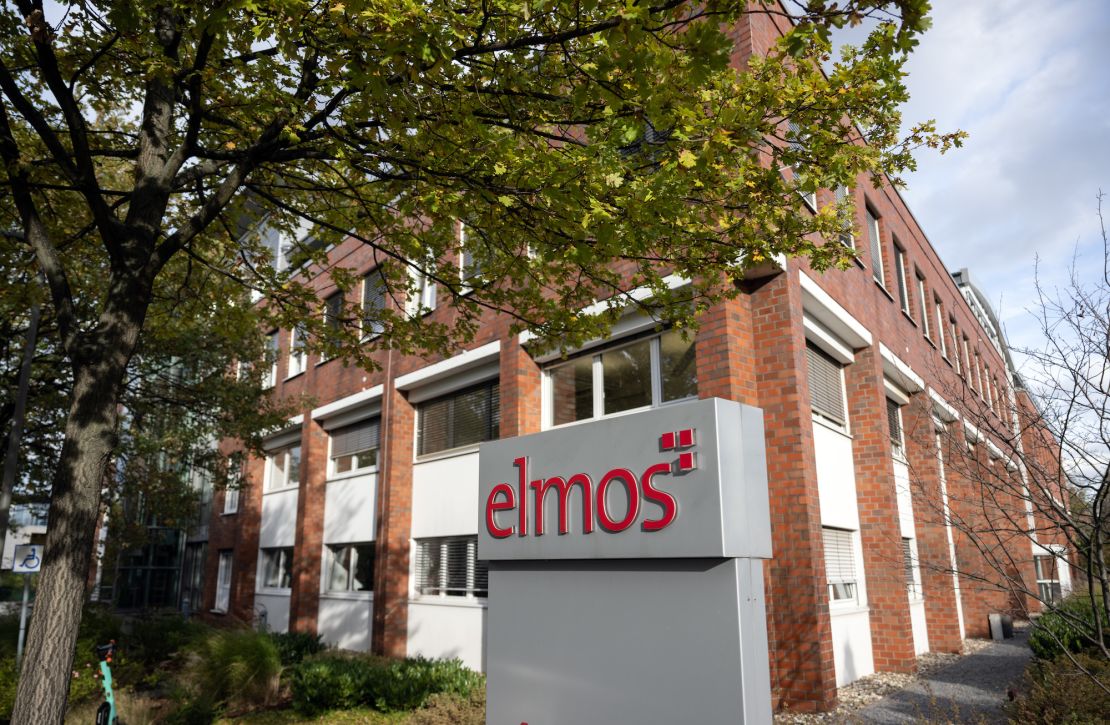
It’s possible that regulators were concerned about an outflow of technical know how, according to Alexander Rinne, the Munich-based head of international law firm Milbank’s European antitrust practice.
“Elmos is known for making chips for the automotive sector, which is Germany’s core industry and the pride of the country,” he said in an interview.
Elmos and Nexperia both declined interview requests. A Nexperia spokesperson told CNN Business on Tuesday that it was “considering its options regarding the UK government’s decision.”
A growing debate
Chips are a growing source of tension between the United States and China. Washington has declared a shortage of the materials a national security issue, and highlighted the importance of remaining competitive in advanced technology capabilities.
This year, the United States ramped up its own restrictions and pressed allies to enact their own, according to Lu. In August, the US government ordered two top chipmakers, Nvidia (NVDA) and AMD (AMD), to halt exports of certain high-performance chips to China.
Two months later, the Biden administration unveiled sweeping export controls that banned Chinese companies from buying advanced chips and chip-making equipment without a license. The rules also restricted the ability of American citizens or US green card holders to provide support for the development or production of chips at certain manufacturing facilities in China.
The pressure is mounting. On Monday, NATO Secretary General Jens Stoltenberg urged the West to “be careful not to create new dependencies” on China. Speaking at a NATO parliamentary assembly in Madrid, Stoltenberg said he was seeing “growing Chinese efforts” to control Western critical infrastructure, supply chains, and key industrial sectors.
“We cannot give authoritarian regimes any chance to exploit our vulnerabilities and undermine us,” he said.
China has pushed back on the handling of the two European semiconductor cases.
“We firmly oppose the UK’s move, and call on the UK to respect the legitimate rights and interests of Chinese companies and provide a fair, just, and (a) non-discriminatory business environment,” Chinese Foreign Ministry Spokesperson Mao Ning told a press briefing last Friday when asked about the Newport Wafer order. “The UK has overstretched the concept of national security and abused state power.”
Zhao Lijian, another Chinese Foreign Ministry spokesperson, called on Germany and other countries to “refrain from politicizing normal economic and trade cooperation” at a press conference earlier this month, without addressing Elmos specifically.
Germany has shown greater scrutiny of Chinese buyers this year. Last month, a bid by Chinese state shipping giant Cosco for a stake in a Hamburg port terminal operator sparked similar controversy. Under pressure from some members of the government, the size of the investment was later limited.
The next battleground
Attorneys say if the chipmakers appeal, they could face an uncertain battle that may drag on for years.
In each case, they would need to file a challenge in court within roughly a month of regulators’ decisions, barring exceptional circumstances, according to Norton Rose.
Both Britain and Germany have recently added rules that expand government oversight over such decisions, making outcomes harder to predict. In Germany, a change to foreign direct investment rules in 2020 meant the government can intervene in prospective deals “if there is a ‘probable impairment of public order and security,’” said Schaper.
Previously, by contrast, it could only impose restrictions “if there was an ‘actual, sufficiently serious threat to public order and security,’” he told CNN Business.
In the UK, the ability of the government to retroactively review deals under the NSI Act “was really something that was considered surprising and far-reaching,” said Andrea Hamilton, a London-based partner at Milbank.
“If challenged, as Nexperia apparently intends, it will also become a test case as to [the] extent of the NSI Act’s limits,” she said.
Elsewhere, attention is shifting to the Netherlands. The Dutch government is currently facing pressure from the United States to limit exports to China, particularly from ASML (ASML), a semiconductor equipment maker that holds a dominant position in the lithography machine market, according to Lu at Eurasia Group.
“It will become the next case study,” she told CNN Business.
The Netherlands has made clear it will form its own position.
Asked about the issue this month, Dutch Minister for Foreign Trade Liesje Schreinemacher said the country would “not copy the US export restrictions for China one-to-one.”
“We make our own assessment,” she said in an interview with Dutch newspaper NRC.
— CNN’s Zahid Mahmood, Rose Roobeek-Coppack and Laura He contributed to this report.


